This year marks the 60th anniversary of the establishment of Sino-French diplomatic relations and the 10th anniversary of the Yenching Academy. On this occasion, YCA Dean Dong Qiang invited Luc Chatel, former Minister of National Education of France, to the symposium “Interplay of Education, State & Economy: Education as Soft Power for a Country and Driving Force for Its Economy.” The symposium took place on April 24, as the inaugural event of YCA’s 10th anniversary series. Luc Chatel shared his view on education’s role. Jean-Pierre Raffarin, former Prime Minister of the French Republic and Shuhsi Hsü Chair Professor joined the event as discussant. The symposium was hosted by Dean Dong Qiang.
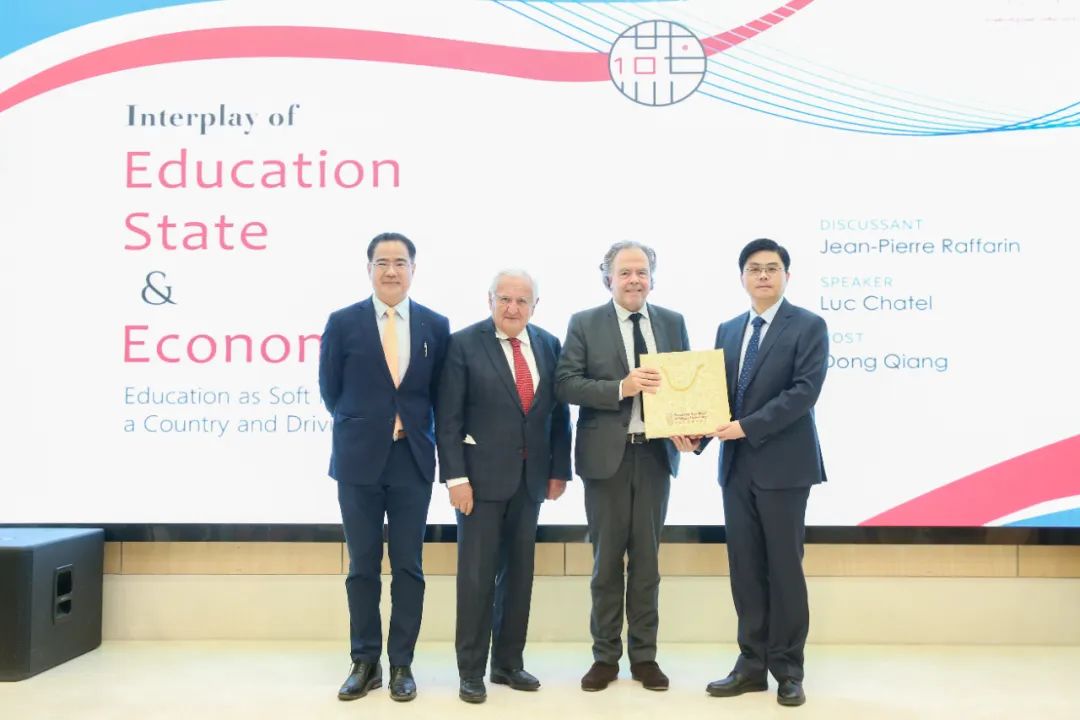
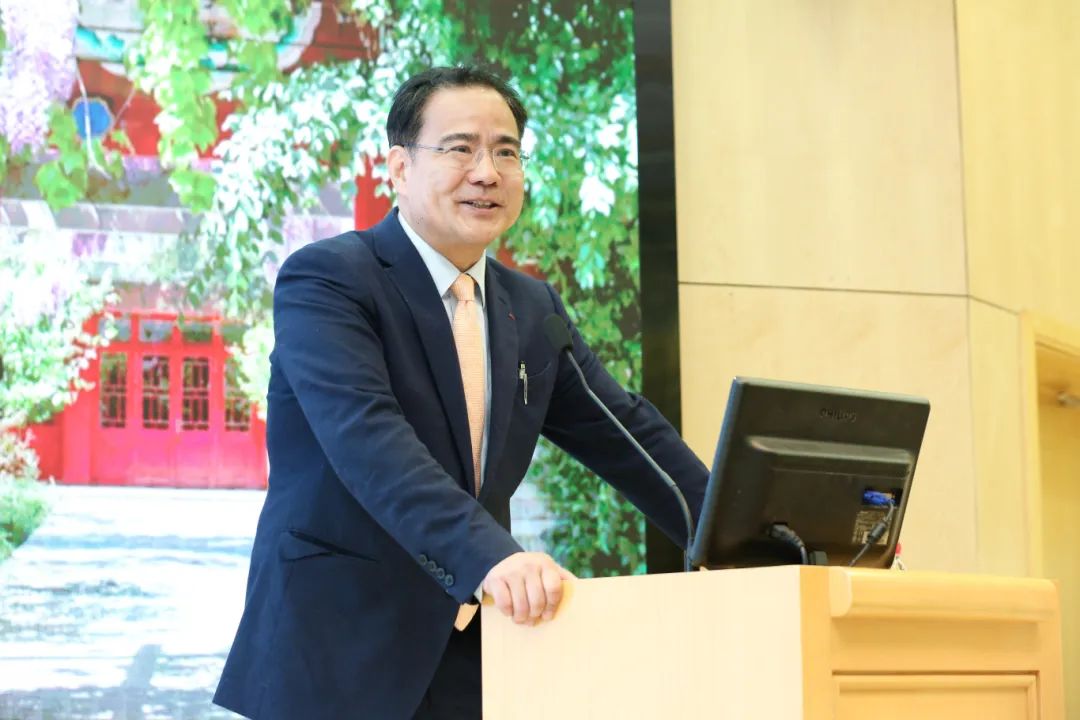
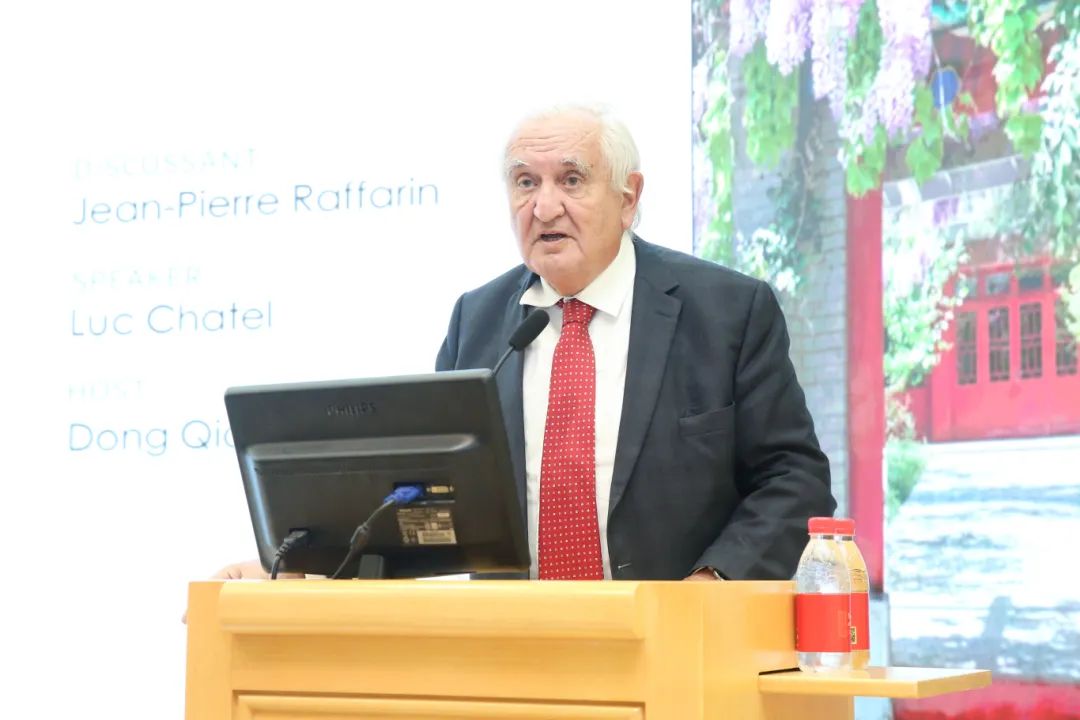
Before the symposium, Professor Fang Fang, vice president of Peking University met with the guests. Dean Dong Qiang extended his warm welcome to Mr. Raffarin and Mr. Chatel. He stressed the significance of the symposium as the inaugural event of YCA’s 10th anniversary series and released the 10th anniversary logo. Mr. Raffarin introduced Mr. Chatel’s career achievements. Long engaged in education and economic development, Luc Chatel was former Minister of National Education and deputy at the French National Assembly. He has been president of the Automotive Platform PFA since February 2020.
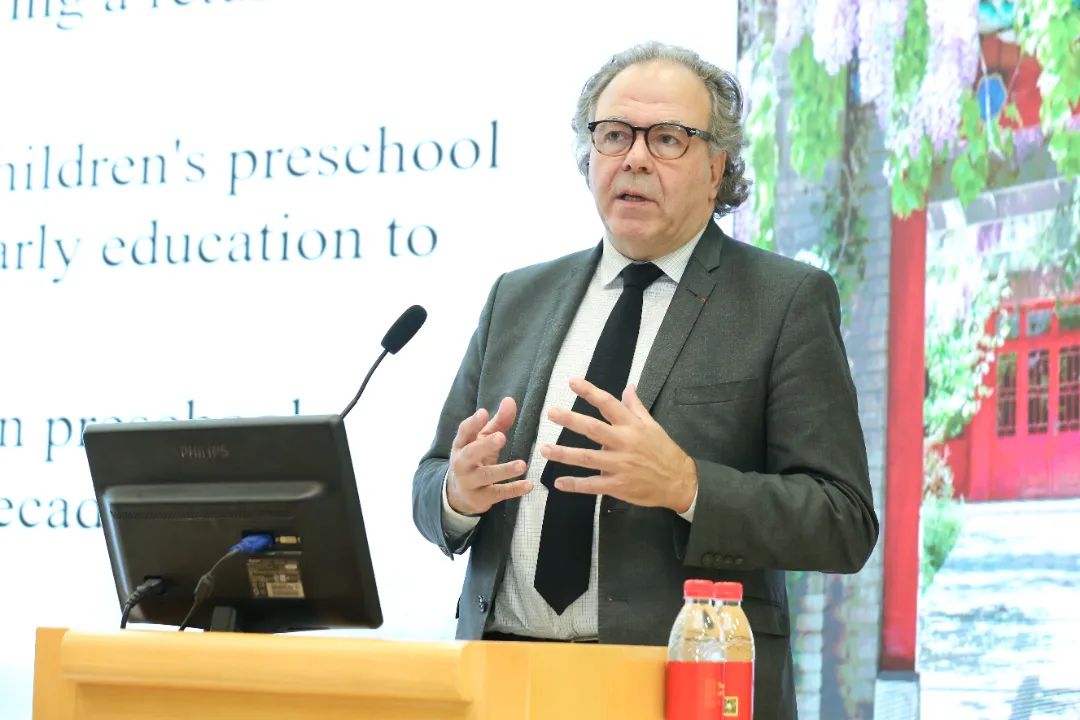
Mr. Chatel talked about the challenges and missions of the education system. He highlighted that education is levers for social progress, quoting Nelson Mandela’s most famous “Education is the most powerful weapon which you can use to change the world.” Whatever a country’s history or political institution is, its tertiary education always aims at knowledge, educational, and career development. Language-centered cultural education has grown important day by day in the increasingly globalized world since the 1950s. language, culture, and values help build social consensus and “prepare young people to make free choices in the context of accelerated technological, social, and environmental changes.” Mr. Chatel pointed that “education improves the economic prospects of families,” and showed the audience an OECD study. The OECD study shows that people with higher education earn an average of 56% more than those with secondary education. Also, in France, much more children whose parent have a diploma receive higher education than children whose parents do not have a diploma. In face of determinism in reality, Mr. Chatel hoped that the reform of education system could open up larger “space of possibilities” for the public.
Mr. Chatel took South Korea as the example, pointing that the country’s education-favorable policy since the 1960s has largely fueled the rapid economic growth in the country. And in Morocco, education and training programs have created greater opportunities for education in rural areas, making local families benefited from the country’s economic development. Chatel noted that educators should follow the law of education and be aware of the importance of early childhood education. He found China’s preschool education program an exemplar. Education, being pivotal and sensitive, is a major concern on government agenda worldwide, despite debates over specific education systems. In an era of rapid growth and changes, we need to keep focused on the tension between centralized and self-directed education, and the tension between being academic and skill-based, to see school education better adapted to social issues like artificial intelligence and bullying.
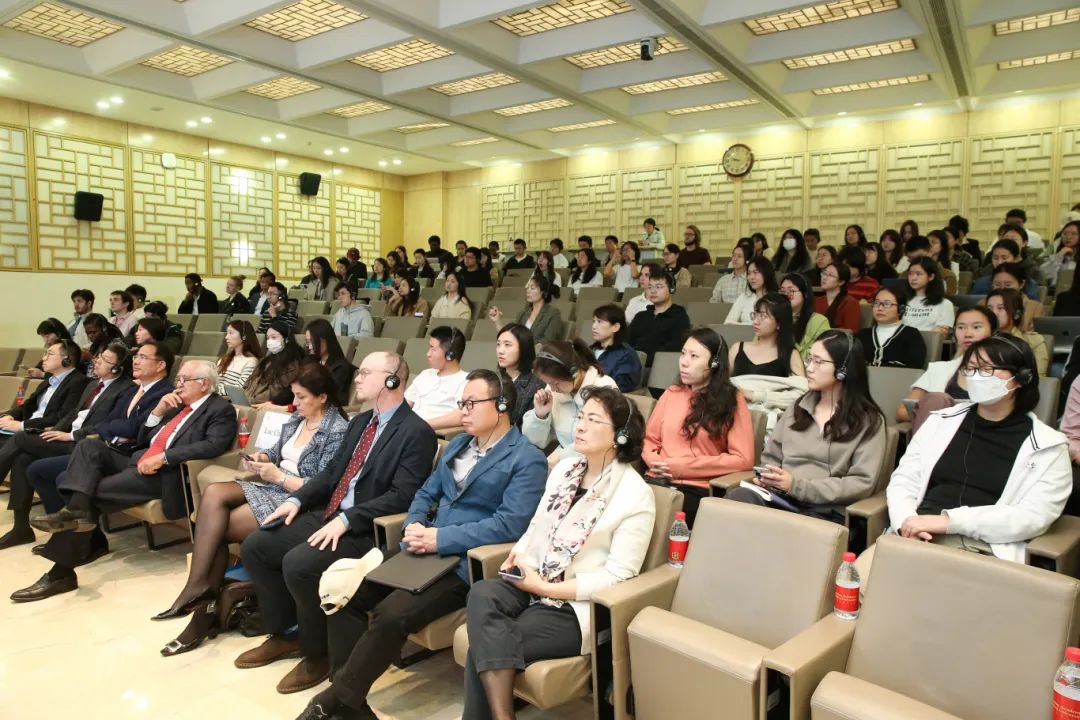
Mr. Chatel then went on to education’s role of an economic boost, pointing that investment in education is one of the decisive forces for economic competence. For instance, OECD members spend on average 5.5% of their GDP on education. Investment in education has impacts on a country’s capability of innovation and technology. China, South Korea and Israel are the largest investors in education, in terms of the ratio of education expenditure to GDP, and the three enjoy the rapidest economic growth in the world. Mr. Chatel also emphasized education’s role in career development. Both OECD and UNESCO put emphasis on the role of education in preparing people to get new skills and adapt themselves to technological changes. According to the World Economic Forum (WEF), “65% of children entering primary school today will ultimately end up working in completely new job types that don’t yet exist.” In this context, people need skills to deal with new technological changes and must be prepared with creativity, problem-solving skills, and flexibility, to adapt themselves to increasingly specialized occupational requirements and occupational mobility. Mr. Chatel stressed that social skills and technological skills deserve our due attention. New job types require higher level of education, and governments need a keen eye for such changes and make in-advance adjustments to education and training policies, to meet the demands to new jobs and skills imposed by industrial changes. To this end, public sector needs to work out strategy for long-term development and enter into collaboration with related industries.
In the last part of his lecture, Mr. Chatel discussed education as soft power of a country, highlighting that education has played a pivotal role in cultural communication. According to him, eminent exchange projects and scholarships like Fulbright Program have been great help to improve students’ skills and produced far-reaching influence on diplomatic relations. Confucius Institute is a success in years’ effort to promote Chinese language and culture around the globe. Mr. Chatel called for attention to the relationship between education and geopolitics. China and France both boast a long history and rich culture, as well as extensive network of global education. China receives over 490,000 international students, more than 12,000 among whom are from France. China is one of the favorite destinations for French students.
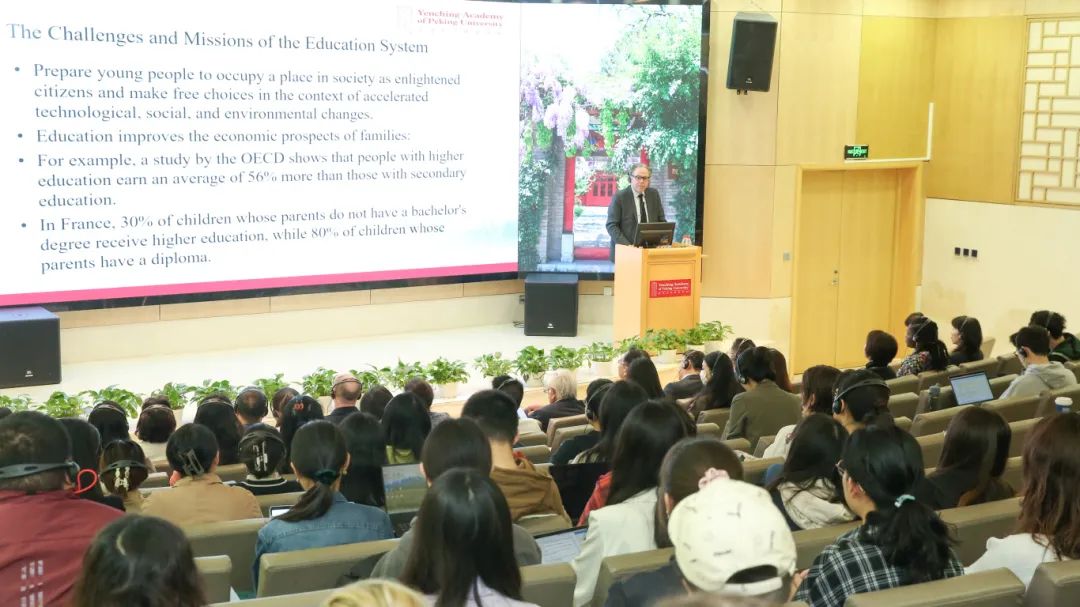
Ha Wei, associate dean of the PKU Graduate School of Education, Yu Jia, senior operations officer and director of International Development Cooperation Department at the Institute of New Structural Economics, Peking University, and other attendees raised questions in the Q&A session. Mr. Chatel gave his opinions on issues concerning academic clusters, development of francophone Africa, Sino-French cooperation, language learning, and comparative education systems.